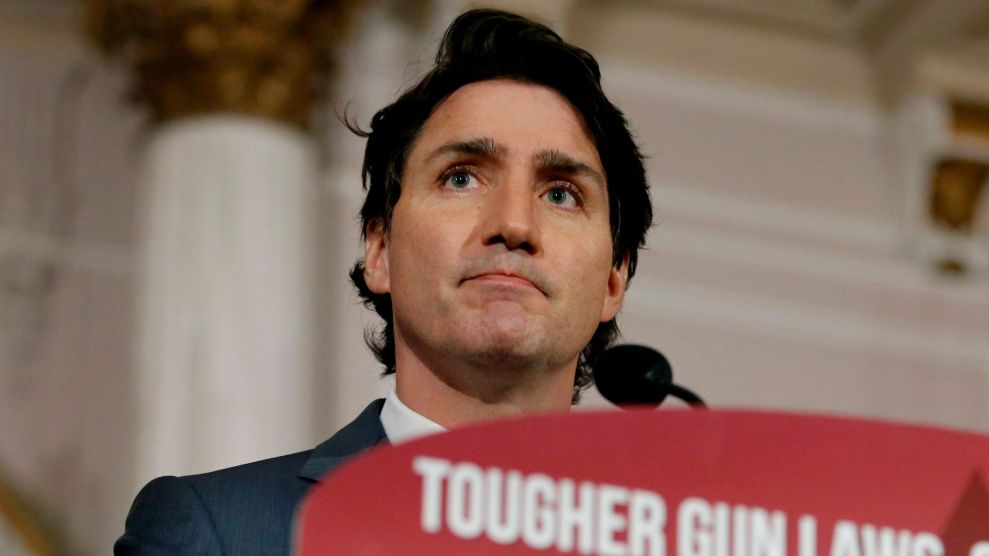
Patrick Doyle/The Canadian Press/AP
After the horrific murder of 19 children and two teachers at Robb Elementary School in Uvalde, Texas, politicians moved quickly, even in the face of backlash, to pass legislation to buy back assault weapons and limit the sale and transfer of handguns.
It’s just that those politicians are Canadian.
Citing worsening homicide rates and the cautionary tale “south of the border,” the Canadian government yesterday introduced a massive bill designed to reduce the presence of deadly weapons.
Yesterday’s legislation would freeze the sale of handguns, initiate a mandatory buyback of most military-style assault rifles, and implement so-called “red flag” laws that allow judges to temporarily confiscate weapons from people viewed to be suicidal or dangerous to others. The bill, which will likely garner the support of both the Canadian Liberal and New Democratic Parties, is all but guaranteed to pass despite objections from conservatives.
The government also announced that it will require all rifle magazines to be altered to fit a maximum of five rounds and that it will ban the sale of large-capacity magazines.
“As a government, as a society, we have a responsibility to act to prevent more tragedies,” Prime Minister Justin Trudeau said yesterday. “We need only look south of the border to know that if we do not take action, firmly and rapidly, it gets worse and worse and more difficult to counter,” he added.
Canada has far fewer mass shootings than the United States and fewer guns per capita, but the rate of firearm-related homicides—most involving handguns—rose between 2013 and 2020.
Canada’s latest move to cap the number of deadly weapons in the country may demonstrate that the fear of a uniquely American epidemic of mass shootings has spread beyond the nation’s borders. In 2020, Trudeau’s government banned the sale of 1,500 gun models after a frenzied shooter claimed 22 lives in Nova Scotia. According to the Washington Post, the Nova Scotia killer acquired his weapons in the United States and smuggled them over the border.
The development, however, also underscored just how sclerotic the US government has become, with little obvious movement on the gun issue even after another deadly shooting.
















